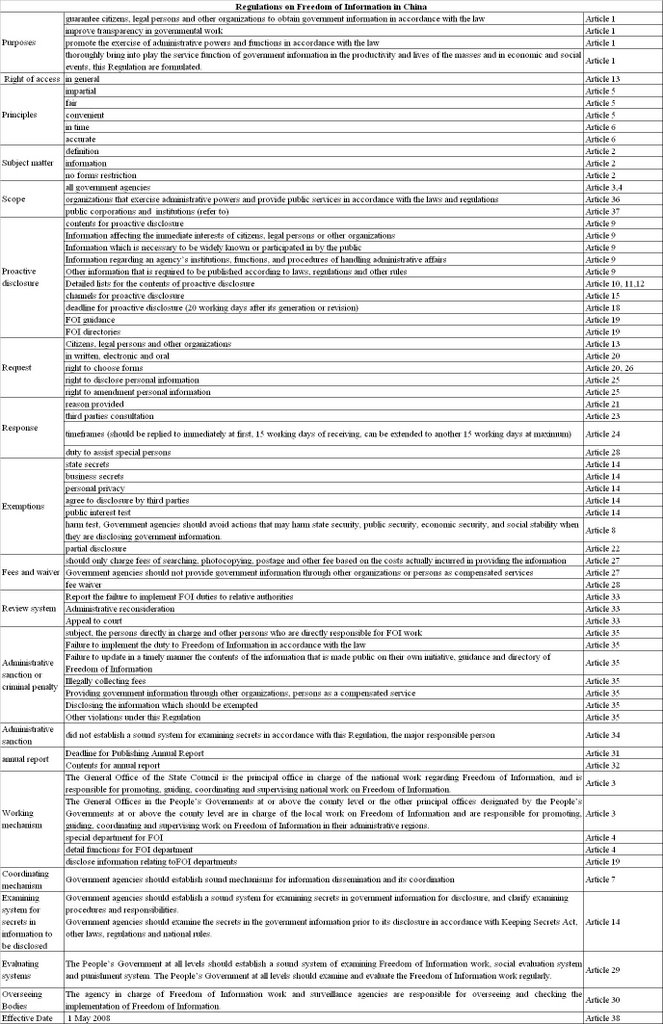FOI in China: A comparative analysis
Abstract
Most non-Chinese writers have approached Freedom of Information (FOI) in China as a relatively recent and ‘strange and intriguing phenomenon’. This study used an extensive array of Chinese sources, interviews with key Chinese officials and academics, and comparative analysis to propose a more complex and detailed understanding of the evolution of FOI in China.
This thesis suggests a rearrangement and reassessment of the many drivers of FOI reform in China. In particular the thesis recommends that democratisation and administrative law reform should be given a more central role in understanding the development of FOI in China, and the roles of informatization and anti-corruption in the process be reassessed and allocated important but more secondary roles.
Gradualism has been the hallmark of administrative law reform in China and FOI legislation has been no exception. This gradualism explains the government’s adoption of a more pragmatic and limited model of FOI legislation where the focus is on forming institutional processes of proactive disclosure, rather than significant and relatively unrestricted access to government information.
The prospects for effective FOI reform, measured by the standards advocated by international NGOs and multilateral institutions, appear fairly limited and inaccurate in China in the foreseeable period. Whereas most of the existing literature, especially non-Chinese writers’, has treated the FOI phenomenon as a paradox or is dismissive of its long term capacity for effective reform, this thesis treats it as part of a longer term and significantly wider political and law reform process.

No comments:
Post a Comment